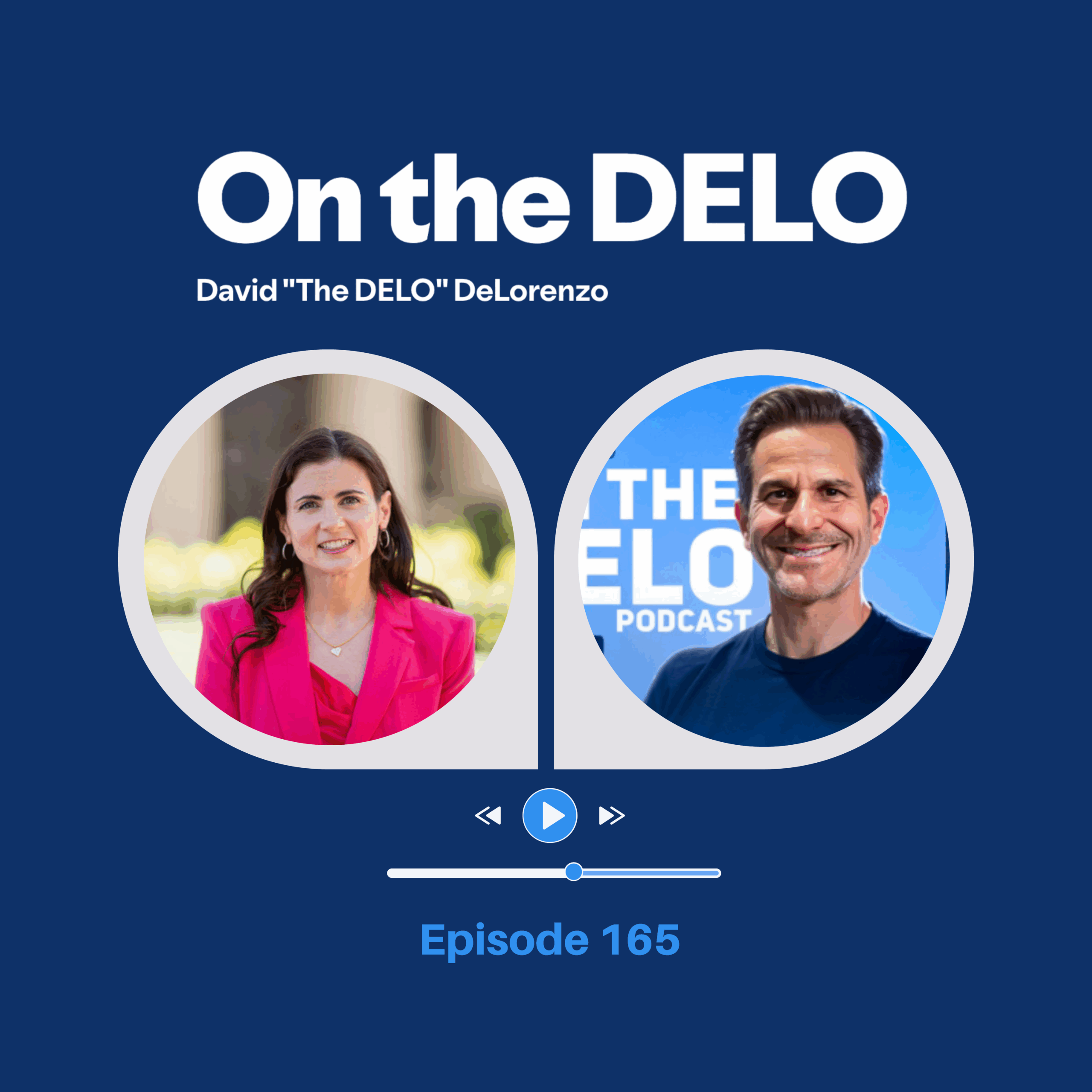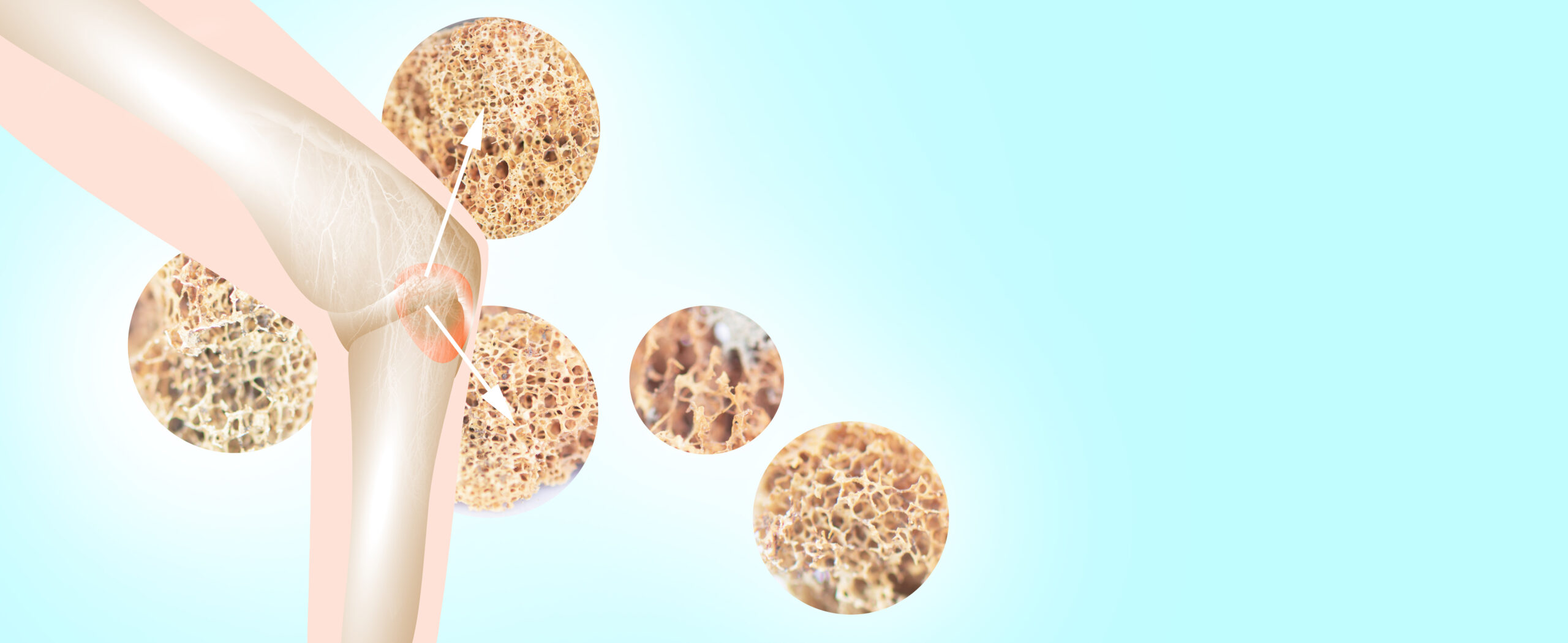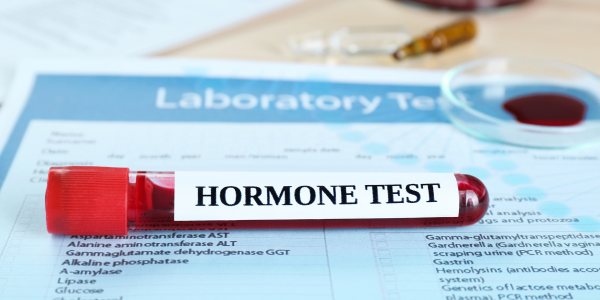

Osteoporosis is a disease characterized by low bone density, often with no clear symptoms until a fracture occurs. Normally, bone mass increases throughout childhood, with 90% of bone mass being acquired by age 18. But as we age bone mass can decrease, leading to lower bone density than normal (osteopenia) – and sometimes osteoporosis. Let’s look at what causes osteoporosis, treatment options, and the functional medicine approach to osteoporosis.
What Causes Osteoporosis?
Osteoporosis occurs due to an imbalance of bone components called osteoclasts and osteoblasts. Osteoclasts break down and resorb bone to initiate normal remodeling of the bone. Osteoblasts are responsible for the formation of new bone through ossification. The osteoblasts form new bone by forming a covering over the older bone surface.
When osteoblasts and osteoblasts aren’t in balance, bone density changes occur – the bone can break down too fast without new bone tissue forming in its place.
How Is Osteoporosis Diagnosed?
Osteoporosis is diagnosed with a DEXA scan, known as dual-energy x-ray absorptiometry. DEXA scans use x-ray to measure bone density and bone mineral content.
DEXA scans are scored by comparing your results to other adults. This helps your provider understand your bone density score as a function of your age and gender. A bone density score includes two values: T and Z scores. The T-score looks at your bone density in comparison to that of a healthy person. The Z-score compares your bone density to that of the average bone density of a person of the same age and gender. The Z-score is often used to diagnose secondary osteoporosis for children, young adults, pre-menopausal women, and men under 50 years old. Your DEXA scan results will tell you which areas are normal, have osteopenia (a decreased bone density), and/or osteoporosis.
How to Interpret Z Scores:
A normal Z score ranges from -2 to 2.5. A low Z score is more than 2 standard deviations below other individuals in your age and gender, such as -2.5. This result shows low bone mineral density and is cause for concern. When this occurs, it’s important to consider other factors that may be playing a role in your decreased bone density.
Osteoporosis Treatment
Osteoporosis treatment is multimodal, meaning it can be treated from different angles. Traditionally, medications like bisphosphonates are used to treat osteoporosis in modern medicine but other lifestyle changes can support treatment – weight bearing exercise, diet, inflammation control, a healthy gut microbiome, hormone health, and supplementation. Let’s look at each.
Traditional Medications for Osteoporosis
Medications like monoclonal antibodies and bisphosphonates are the most commonly prescribed medications by traditional medical providers for osteoporosis.
Common monoclonal antibodies and bisphosphonates include:
- Alendronate
- Risedronate
- Denosumab
- Romosozumab
These medications work through antiresorptive mechanisms, interfering with the action of osteoclasts which break down and resorb bone. While they are commonly used, not everyone can tolerate them because of side effects.
Side Effects of Traditional Medications for Osteoporosis
Bisphophonates and monoclonal antibodies have both common and rare side effects.
Common side effects include:
- Nausea
- Vomiting
- Peptic ulcers
- Abdominal pain
- Diarrhea
- Constipation
Rare side effects of osteoporosis medications include:
- Disrupted blood flow to the jaw bone called osteonecrosis
- Atypical femoral neck fractures
- Inflammation of the esophagus called esophagitis
But what if you don’t want to take an osteoporosis medication with those side effects or have tried them and can not tolerate them? That’s where natural osteoporosis treatment comes in.
Lifestyle Support for Osteoporosis
Exercise
Medical literature shows weight-bearing and resistance exercise positively impacts bone mineral density. High impact weight-bearing exercises that impact bone mineral density include jogging, aerobics, and jumping. Muscle strengthening exercises to treat osteoporosis include lifting weights, using resistance bands, and body weight strength exercises. Long-term exercise is so important for bone health that studies show an increase in bone formation markers and increased bone mass when exercise is done consistently over time. This is especially true in post-menopausal women. Lifting weights heavy enough to stress the bone to induce bone growth is the one most important type of exercise you can do prevent and treat osteopenia and osteoporosis.
Anti-inflammatory Diet
Eating an anti-inflammatory diet high in nutrients contributes to bone health. Research shows that eating a healthy diet can reduce the risk of osteoporosis and fractures.
Getting enough protein is also essential and offers a protective benefit against osteoporosis. At least 90 grams of protein each day is ideal, especially for those over age 65. It’s believed that increasing protein intake positively affects both body mass and the prevention of osteoporosis. One study of older adults found that a focus on increased protein in combination with vitamin D prevented fractures and increased bone density.
Control Inflammation
As we age, we produce more pro-inflammatory cytokines. These cytokines play important roles in the bone remodeling process. For example, the pro-inflammatory cytokine interleukin (IL)-6 is involved in the pathogenesis of several bone diseases, including postmenopausal osteoporosis. An association with osteoporosis and pro-inflammatory cytokines suggests that controlling inflammation can support bone health.
How can you control inflammation? Start with an anti-inflammatory diet. Getting good quality sleep, stress management, and exercise can also help. Learn more about how to reduce inflammation here.
Healthy Gut Microbiome
After finding a relationship between gut-related inflammatory diseases and a decrease in bone mass, researchers established that the gut microbiome helps regulate bone mass. Restoring balance for a healthy gut microbiome can be done with the help of probiotics and prebiotics. Eating probiotic foods like sauerkraut, kimchi, and kefir can also help restore a healthy gut microbiome and support bone health.
Healthy Hormones for Osteoporosis
Did you know hormones play a role in osteoporosis? Increased cortisol, parathyroid hormone, hyperthyroidism, decreased testosterone, and decreasing estrogens as happens with menopause all contribute to osteoporosis.
Take cortisol for example. It decreases the lifespan and function of osteoblasts, which are responsible for new bone formation. Parathyroid hormone and FSH also play a negative role, increasing the proliferation of cells in the regulatory bone process.
Male and female hormones like estrogen and testosterone also contribute. A decrease in estrogen inhibits bone resorption, while a decline in testosterone supports bone loss. A hormonal assessment is often recommended, especially if bone loss is a concern. Sometimes hormone replacement therapy can help.
If you’re unsure of the state of your hormones, hormone testing may be needed. Talk with your functional medicine provider about what’s right for you.
Supplements for Osteoporosis
Certain supplements promote bone health and aid in the absorption of vitamins and minerals into the bones. Vitamin D and calcium are especially important but aren’t the only ones that matter!
Vitamin D plays a protective role in bone health. Having enough vitamin D3, between 50-60 nmol/L is ideal. When combined with vitamin K2, vitamin D3 helps direct calcium absorption into the bones. Here’s a great one with both vitamin D3 and K2.
Minerals like calcium, magnesium, phosphorus, boron, and strontium are also important.
- Calcium: An essential nutrient for bone health, calcium reduces fractures and supports bone health.
- Magnesium: An important mineral for healthy bones, it’s been found that those with high magnesium intake have higher bone mineral density.
- Phosphorus: Essential for normal bone formation and maintenance.
- Boron: A trace mineral with anti-inflammatory effects, boron is essential for the development and maintenance of bones.
- Strontium: Promotes formation of bone by osteoblasts and inhibits bone resorption.
Collagen, a building block for bone and connective tissue, is another supplement that can be taken to support bone health.
Curcumin, berberine, and resveratrol are naturally anti-inflammatory and act as antioxidant supports for bone health.
The Functional Medicine Approach to Osteoporosis
While bone health may be the last thing on your mind as a young adult, building healthy bones helps you build a future with less risk of osteoporosis.
But for some, osteoporosis is already a reality. Functional medicine can help. Whether it’s supplementing with specific vitamins like D3 when needed, boosting protein in your diet, decreasing inflammation, or healing the gut, functional medicine looks deeper than just the symptoms on the surface.
If you want more support with osteoporosis prevention or treatment, an appointment with your functional medicine provider is a great step. At Arizona Wellness Medicine, our team of functional medicine providers are experienced in bone health and osteoporosis treatment. To make an appointment, head here.
Resources:
- Early-Onset Osteoporosis
- Exercise and Nutrition Impact on Osteoporosis and Sarcopenia—The Incidence of Osteosarcopenia: A Narrative Review
- Osteoclasts have Multiple Roles in Bone in Addition to Bone Resorption
- Osteoblasts
- PHARMACOLOGICAL AGENTS AND NATURAL COMPOUNDS: AVAILABLE TREATMENTS FOR OSTEOPOROSIS
- Osteoporosis, inflammation and aging
- Healthy Gut, Healthy Bones: Targeting the Gut Microbiome to Promote Bone Health
- The effects of strontium on bone mineral: A review on current knowledge and microanalytical approaches
- Nothing Boring About Boron
Share:
Dr. Emily Parke
Social Media
Most Popular Posts
Subscribe To Our Newsletter
Related Posts

New Podcast Episode: My journey into functional medicine + what I’ve learned
I’m excited to share that I recently joined DeLo for Episode 165 of the On the DeLo podcast! In this conversation, we explored my journey

Understanding the Essential Labs for Women on Hormone Replacement Therapy (HRT)
So what are the minimum labs we’re looking at when we do hormone replacement therapy? We obviously want to look at an estrogen level, so

How to figure out the right amount of HRT in women
What about checking lab values when you’re on hormone replacement therapy? I do find it to be helpful, but we also want to consider symptoms.

Did you know there’s a difference between food allergies, sensitivities, and intolerances?
Did you know that there’s a difference between food allergies, food sensitivities and food intolerances? Food allergies, the reactions tend to happen pretty immediately and
